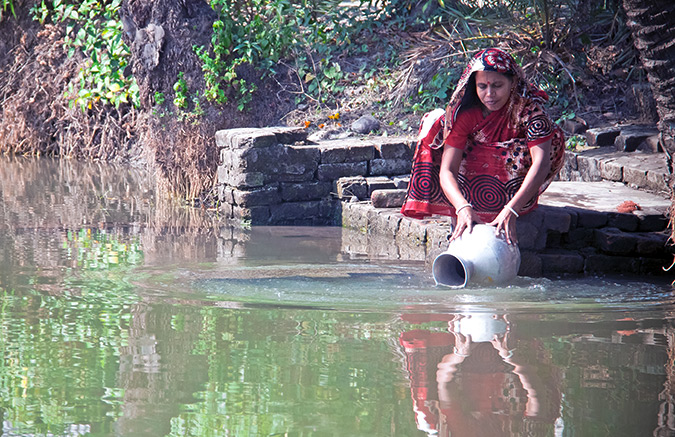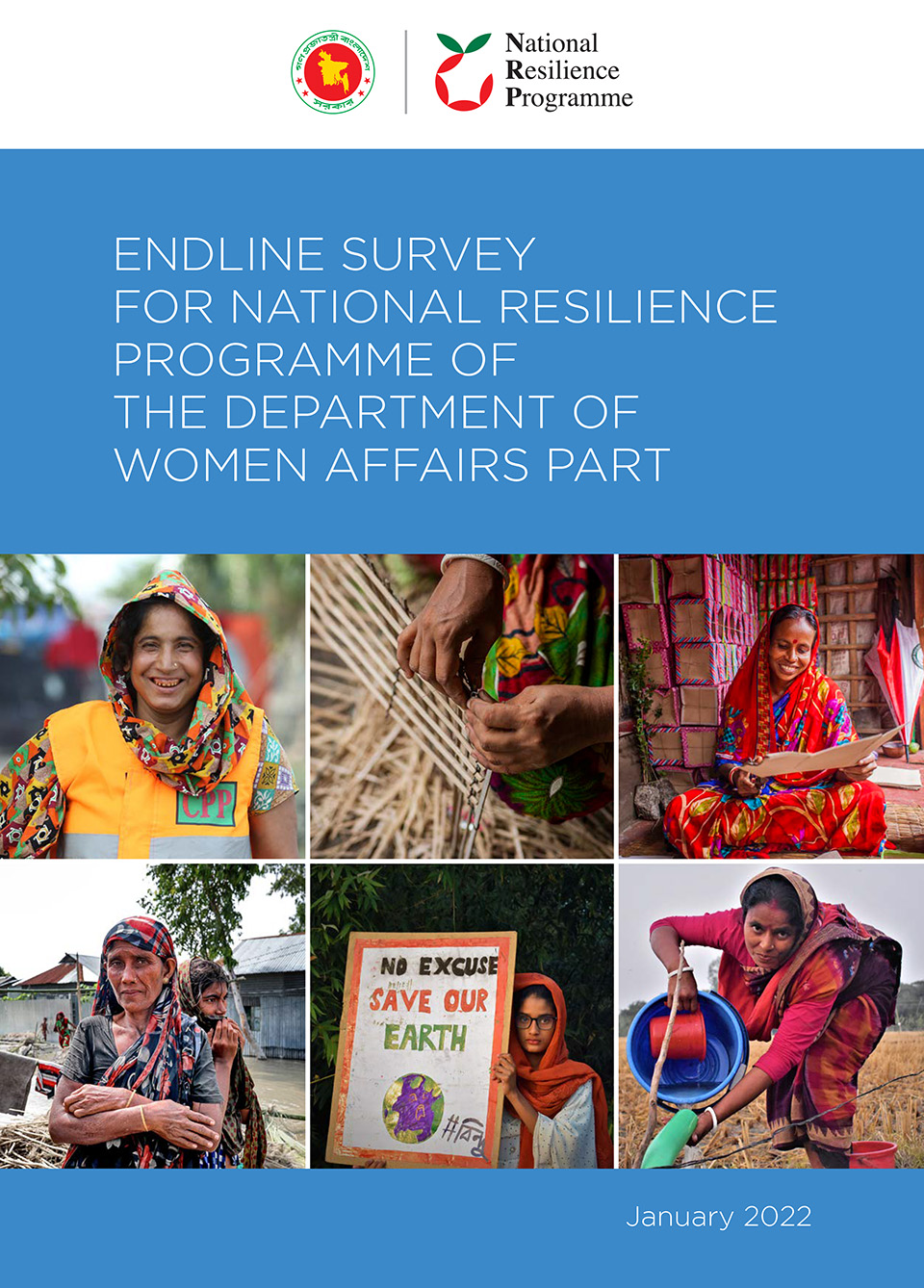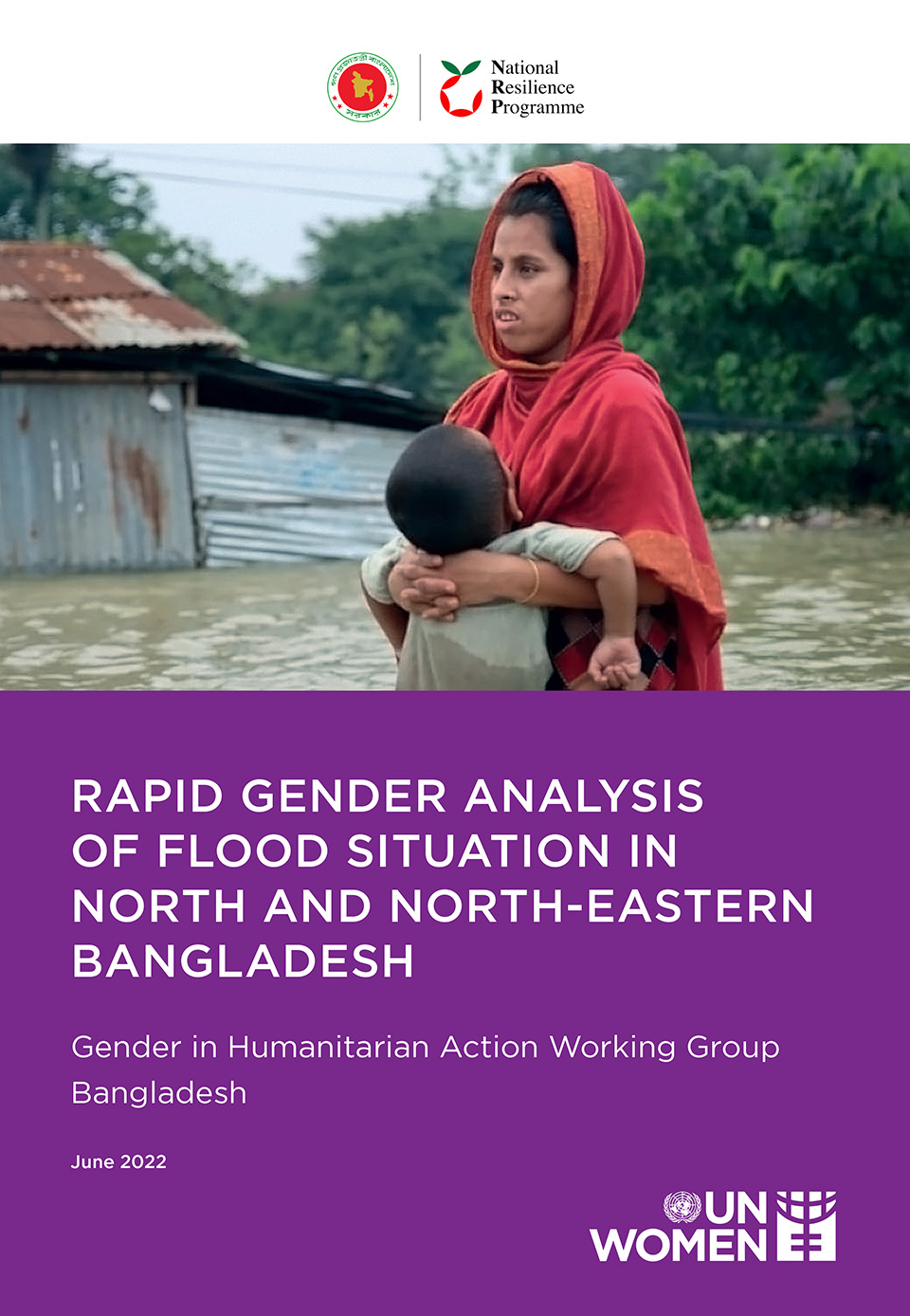
Himani Roy (38) a victim of cyclone Aila (2009) collecting saline free safe water, Srinagar, Dacope, khulna, Bangladesh, 28 November, 2012. This area was badly affected by salinity during cyclone Aila in 2009. Photo: UN Women/Saikat Mojumder
UN Women assists Government of Bangladesh to adopt gender-sensitive policy measures to mitigate women’s vulnerabilities to the effects of climate change and to reduce vulnerability of women effected by climate change through livelihood options. Capacity of government officials are being enhanced on gender mainstreaming in climate change, providing a critical mass within the government with an effective network to promote gender mainstreaming across 38 ministries and departments. Support has also been extended to various line-ministries and CSOs to develop gender-responsive national plans and strategies for disaster management in line with the Sendai Framework for Disaster Risk Reduction.
Furthermore, UN Women together with UNDP, UNOPS, Ministry of Disaster Management and Relief, Ministry of Women and Children Affairs, Ministry of Planning and Ministry of Local Government, Rural Development and Cooperatives is working to sustain the resilience of human and economic development in Bangladesh through inclusive, gender responsive disaster management and risk informed development. Key focus is to improve capacities in integrating gender into DRR community and national DRR planning processes, and to enhance women’s leadership capacities to engage in DRR and Climate change activities.
Bangladesh is also part of the UN Women Regional Programme The ΣmPower: Empowering Women to Secure Climate-resilient Societies.


